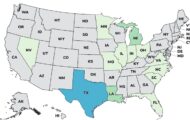Listeria monocytogenes isn’t one of the most common causes of food poisoning, but it is one of the most deadly. Some segments of the population are at special risk. About 90 percent of people who develop Listeria infections fall into three groups, pregnant women, seniors and those with weakened immune systems.
 Paul’s story is featured on the Centers for Disease Control and Prevention’s (CDC’S) website. Paul was a World War II veteran who had received two Purple Hearts. At 92, he was active and in good health when he got listeriosis from eating tainted cantaloupe in September 2011. He died three months later, leaving behind his wife Rosellen of 68 years, five children, nine grandchildren, and 10 great grandchildren.
Paul’s story is featured on the Centers for Disease Control and Prevention’s (CDC’S) website. Paul was a World War II veteran who had received two Purple Hearts. At 92, he was active and in good health when he got listeriosis from eating tainted cantaloupe in September 2011. He died three months later, leaving behind his wife Rosellen of 68 years, five children, nine grandchildren, and 10 great grandchildren.
Roughly 1,600 Americans contract listeriosis each year. Most of them require hospitalization and for about 20 percent of them the disease proves fatal. Symptoms, which can take up to 70 days after exposure to develop, include fever, chills, muscle aches, diarrhea and upset stomach.
Seniors should avoid certain foods at higher risk of Listeria contamination including: raw foods, hot dogs, luncheon meats, or deli meats unless they are reheated until steaming hot; soft cheeses such as feta, Brie, and Camembert, blue-veined cheeses, or Mexican-style cheeses such as queso blanco, queso fresco, and Panela, unless they have labels that clearly state they are made from pasteurized milk; refrigerated pâté or meat spreads; smoked seafood unless it is an ingredient in a cooked dish. Unpasteurized beverages, such as raw milk, should also be avoided.




